The Importance of Involving Kids in The Upkeep
We could write an entire book detailing everything that goes into tending to a family — and we’re sure most of you could, too.
It’s hard to describe exactly… it’s the mental load, it’s The Overwhelm, it’s TCOB, it’s decision fatigue, it’s information overload, it’s feminism gone haywire, it’s… exhausting.
It’s like Betty Friedan said back in the 1960s: it’s a “problem that has no name.”

We’re hoping to start a conversation about what it means to be a part of a collaborative, cooperative family in the 2020s (what?!) — and how to successfully include our children in everything that goes into minding a family and a household. Let’s call it — the business of the family — The Upkeep.
Join the Challenge Now!
It may not surprise you to learn that most American children play virtually no role in The Upkeep these days. Outside of homesteaders and other families that homeschool and/or live closer to the land, it’s just not very common.
Parents (🙋🏻♀️) may say it’s important to them that their children contribute, but for the most part we don’t actually follow through on that belief… It’s more of an abstract conviction that many of us don’t have the time – or the know-how – to actually implement.
And by the way, we aren’t pointing fingers, we are all guilty of this ourselves and believe this cultural problem is quite ubiquitous in the Westernized world. And the pandemic didn’t exactly made things any easier…
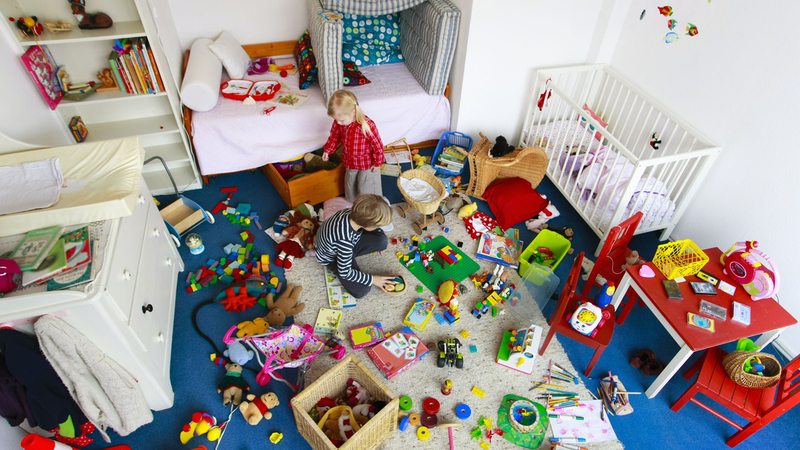
To overgeneralize a bit, there are a few reasons we suspect many parents don’t really insist on their kids helping (you might fall into one or more of these camps):
Why We Resist Our Kids Helping Out:
1. The desire to protect the “bubble of childhood” (i.e.: I don’t want my kids to have to worry about “X.”; or There will be plenty of time for that later in his life — right now, I want him to indulge in ‘just being a kid.’).
Similarly, many parents adhere to the notion that “kids aren’t here to serve parents,” and think that since they chose to be a parent, it would be unfair to ask their children for help.
2. Many kids’ schedules are already jam-packed. With schedules back in full-swing… there’s a sense that between cello lessons and soccer practice and Spanish group and homework and Girl Scouts, there’s hardly any time left for Sally to pitch in around the house — and perhaps even a little guilt in asking her to do so.
For parents who work long hours, kids may not even get home from daycare until 6pm – at which point everyone is already exhausted.
3. Some parents worry that if they assign their children chores, they’ll just end up turning into a nag and so avoid the expectation altogether.
4. With many busy parents working full time, we have (smartly) learned to outsource many domestic duties, including cleaning, child care, home maintenance, etc. This unwittingly communicates the message to children that this type of work is for the hired help to take care of, not the family itself (no judgement, it’s just what happens).
5. And lastly — drumroll, please, for the number one reason we parents neglect to expect our young children to participate in the demands of running our own homes:
We can do it better, faster.
Let’s face it: I can pick up the legos in 75 seconds, but it takes my 4-year-old precisely 17.8 minutes.
Point being: at the end of the day, for many of us, it’s just easier and quicker to do something ourselves than it is to wait for our children to do it with us, usually poorly! (← This is my camp.)
Good news: this is only true in the beginning/short-term. Over time, they learn!
Probably at least one of these lines of reason speaks to you. Perhaps powerfully.
But there are so many reasons why we should strike down all our impulses to “just do it ourselves” and seriously — seriously — let our children, even at the youngest of ages, contribute however they are able. Here’s why:
1. Work is Meaningful
Research across fields (in social psychology, philosophy, early childhood development and anthropology, for example) demonstrates that accomplishing work — whatever that means to you — is meaningful.
As adults, we know this.
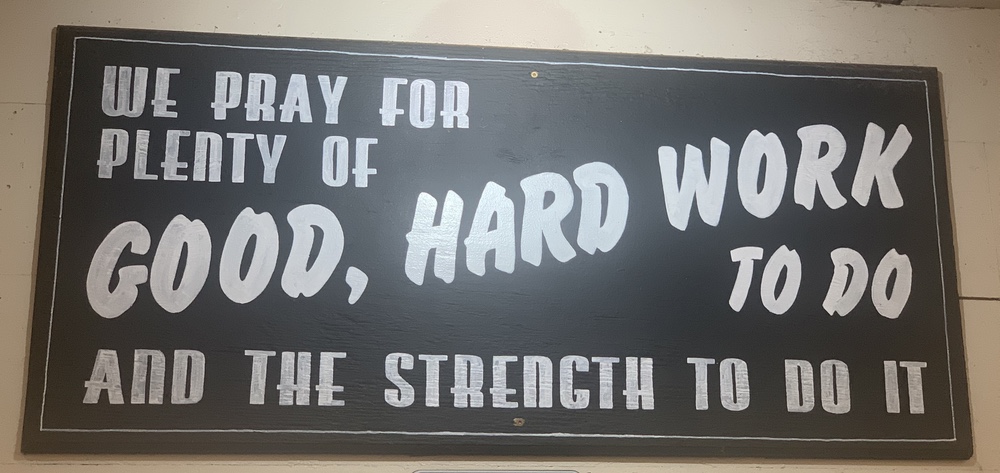
There is nothing quite like a job well done, whether it’s writing a book, finishing a photo album, mowing the yard so the lines are just so, nailing a presentation at work, or finally changing that lightbulb in the basement that burnt out last year (just as a hypothetical example…).
Here’s the thing — children (even toddlers) also crave this same sense of achievement. They are dying to feel capable.

Daycares and preschools know this, and it’s exactly why they excel in devising all sorts of projects for little fingers and minds.
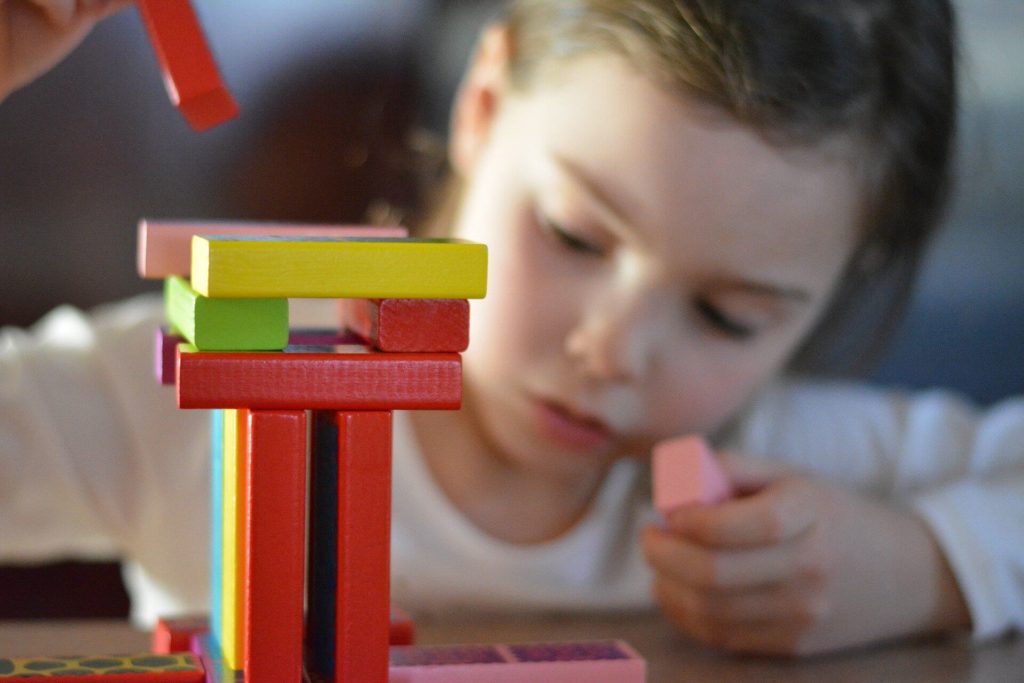
Allowing our children to do meaningful work can help make our kids feel important, connected, and needed.
And as Julie Lythcott-Haims, author of How to Raise an Adult, put it: preventing our children from participating in the work of the home “deprives them of the satisfaction of applying their effort to a task and accomplishing it.”

“For the young child, the gift of being entrusted with meaningful work builds their self-esteem, develops lifelong capabilities and life skills and bonds to the family by distributing the work of the household. Young children naturally want to take part in the world around them.”
~The Kimberton Waldorf School
2. Meaningful Work Builds Character
Studies have shown that children who partake in The Upkeep develop more empathy and have higher levels of emotional well-being than those who don’t. One project even reported that toddlers who helped out with simple household tasks were more likely to be successful in their 20s (!).
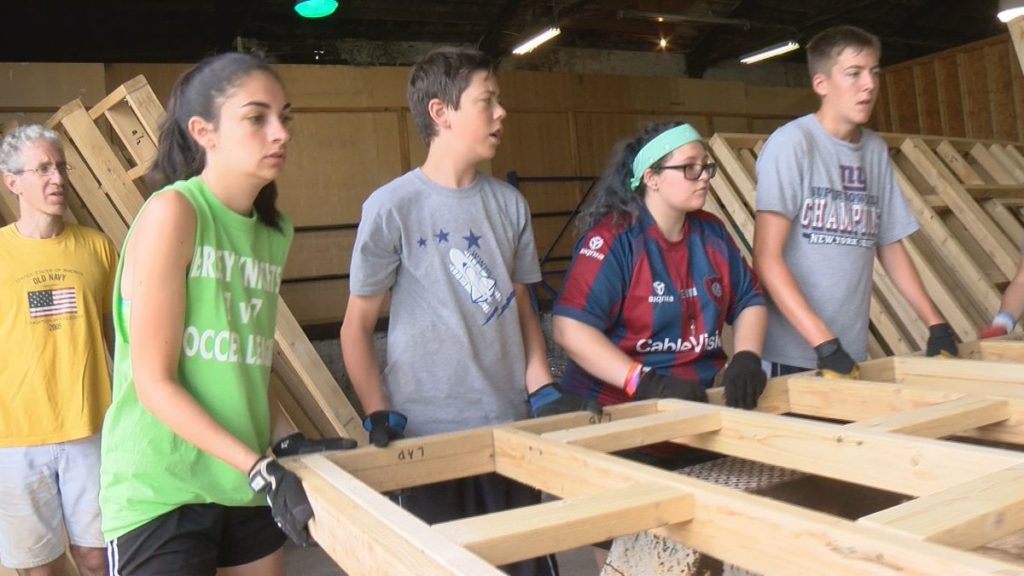
This idea makes intuitive sense: we know that kids like limits and routines and that they pounce on every chance they have to exert their own autonomy.
I love the way NYT writer KJ Dell-Antonia described it: “Although household chores seem like a small thing, the subtle but pervasive message of requiring them isn’t small at all… They’re not just chores — they’re life skills.”
This^ is one reason why we as parents should put some effort into reframing “chores,” which are literally defined as “unpleasant but necessary tasks.”
Alternatively, we love the concept of thinking about household work not as chores but as… opportunities and experiences.
In order to complete simple tasks (like folding, wiping, or sorting), young children often have to focus intently — with the same kind of concentration and repetition many adults pursue as meditative.
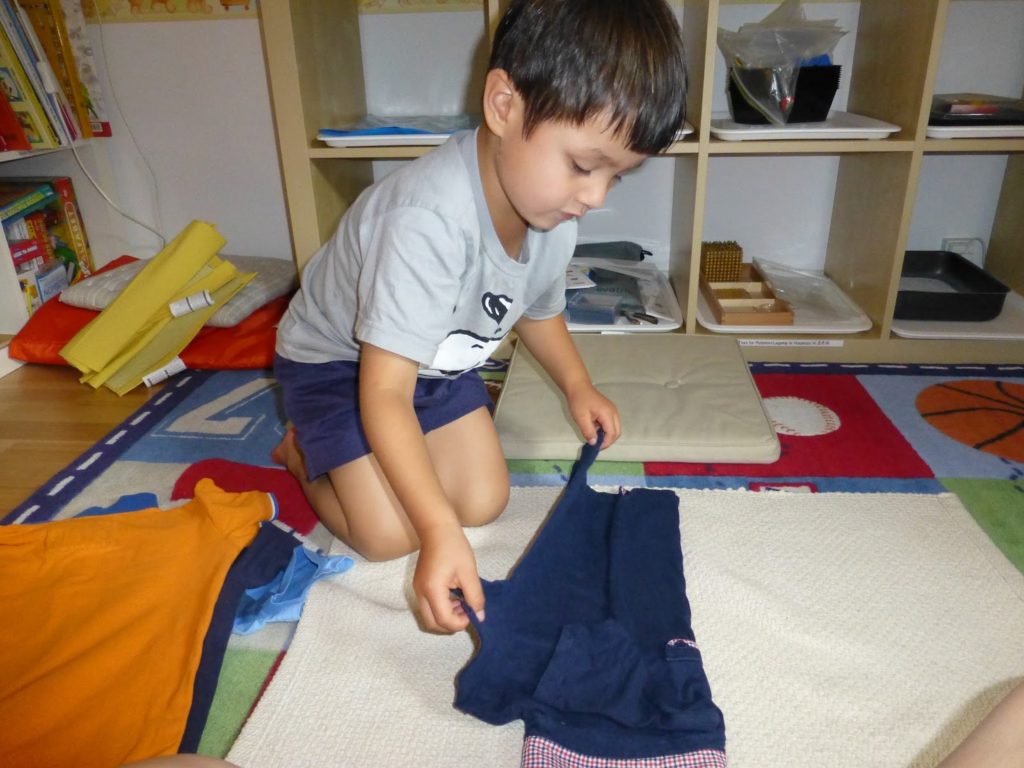
And doing work helps children understand that work doesn’t just magically “happen” — someone takes the time and effort to complete it.
The amazing interaction between June Carter and Johnny Cash from Walk the Line comes to mind, where Johnny tells June to chill: “June, that stuff will just work itself out,” to which she replies: “No, it does not work itself out. People work it out for you…”
3. Kids who Contribute Early Become Competent Adults
Anthropology teaches us that there are HUGE differences in how cultures approach both children and also childhood at large.
Here in the US, kids generally tend not to help out around the house very much. (See the manifold reasons above…)
“We may think our children should do chores, but we really don’t want to have to make them.”
~ KJ Dell’Antonia, New York Times
Around the world, however, in communities that have been relatively isolated from “modern Westernized culture” (don’t read too much into this, folks, we’re speaking in generalities here), children help out around the home all the time. Like, a lot.
Among indigenous families in rural Mexico, for example, kids younger than ten routinely help babysit siblings, cook meals, and run errands — all without being asked.

HOW are these children so integrated into The Upkeep? What kind of magic are these parents working that their kids routinely offer to help out?
Timing is Everything
Anthropologists unanimously agree that their secret is this: they invite their children to help early.
In the US, we tend to shoo children away, especially young toddlers, treating them like they are getting in the way. (Is anyone else sitting here thinking “guilty as charged”?).
When kids are young, they desperately want to do whatever it is that we are doing. Yes, toddlers naturally want to be close to their parents and do as they do.
“In our society — and I’d extend this to most modern, post-industrial nations — we actually deny our children’s bids to help.
We distract them with other activities, we do our chores… when they’re napping, we convey that their ‘helping’ is burdensome and, not surprisingly, the helping instinct is extinguished.”
~ anthropologist David Lancy (Yes, this perspective is pretty messed up.)
The cultures whose kids contribute fully embrace that instinctive desire to assist, allowing their children to participate in The Upkeep right from the start, even as toddlers (~18 months). They let their children partake in what needs to be done, and they welcome their help, even when that help costs them time (or efficacy) in the short term.
Here’s how one team of scholars described the approach: “children are included as an integral part of the family… from infancy and encouraged to help with initiative, as an honorable way of belonging and showing maturity.”
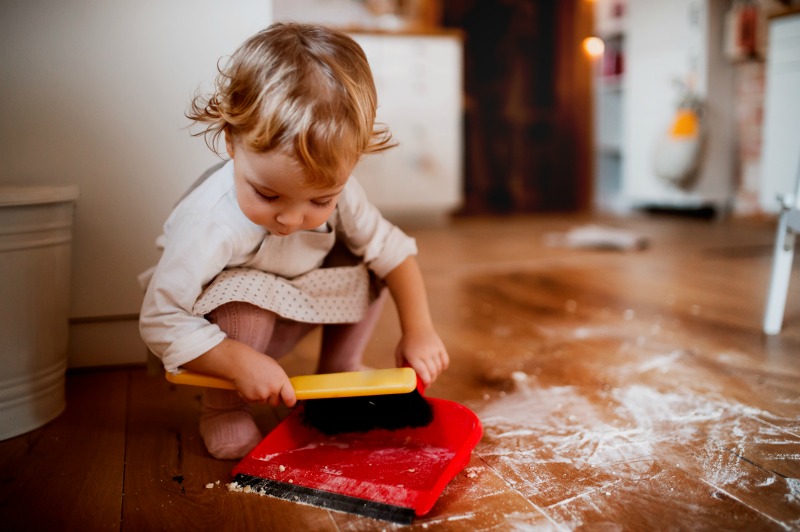
Under this line of thinking, helping around the house is a privilege. (Remember what we said about reframing chores??)
Here’s the thing: the earlier you start, the better, because as NPR reported: “If you tell a child enough times, ‘No, you’re not involved in this chore,’ eventually they will believe you.”
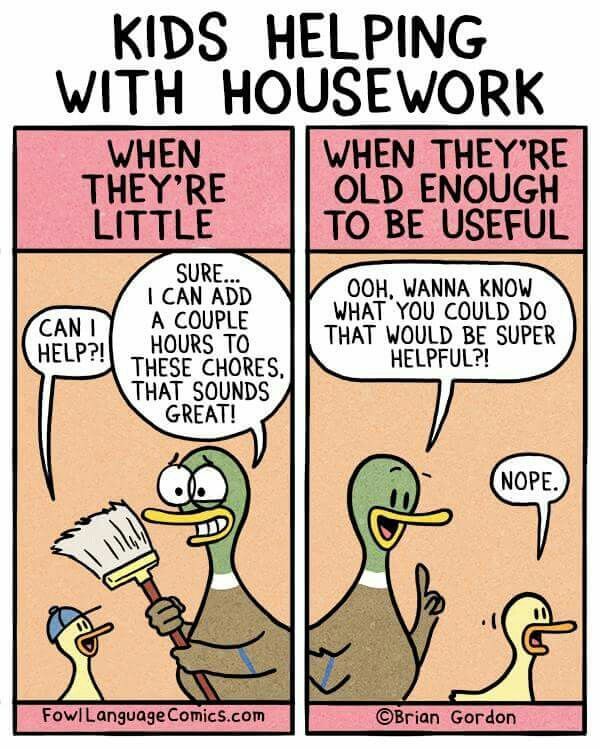
If the toddler years are long gone for you, don’t fret.
I like Slate columnist Jesssica Lahey’s tough love speech on showing up late to the party: “if [your kids] are older and have never been asked to contribute before, be honest. Cop up to the fact that you failed yourself and have been underestimating their abilities all along.” And then start from the ground up.
A number of early childhood education philosophies (Montessori, Waldorf, among others) treat even mundane, everyday tasks (getting a glass of water, wiping a dusty surface, folding clothes, meal prep, organizing, etc.) as precious teaching moments.
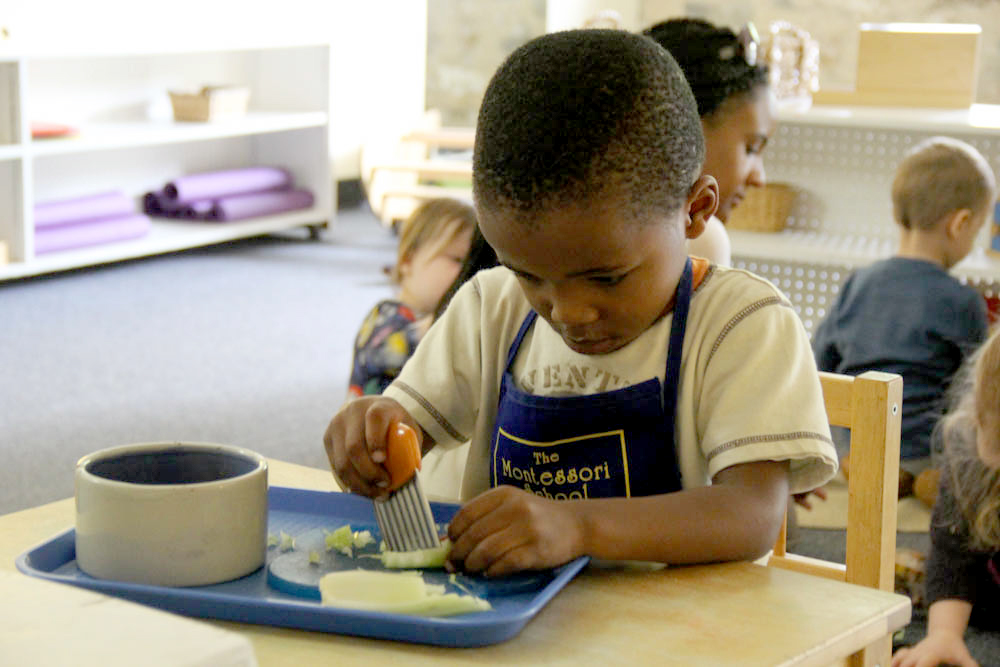
Personally, I think the idea of giving our children the “gift” of purposeful work by being receptive to their help is lovely. What a refreshing way to look at things.
For me, at least, adopting this kind of mindset amounts to nothing short of a complete revamping of my entire take on sh*t getting done around my house — and it’s not always easy. Actually, it’s almost never easy.
But I’m taking it one day at a time, and so far, I have to say I’m seeing results. And actually — most important of all — my kids really are loving helping out.
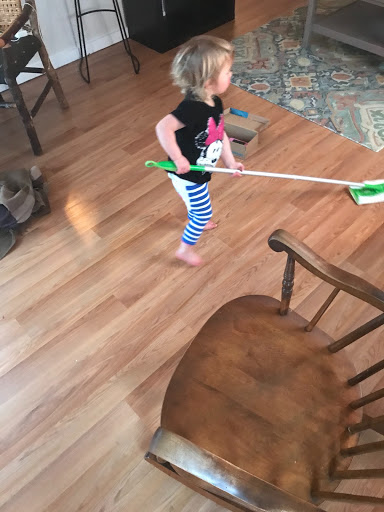
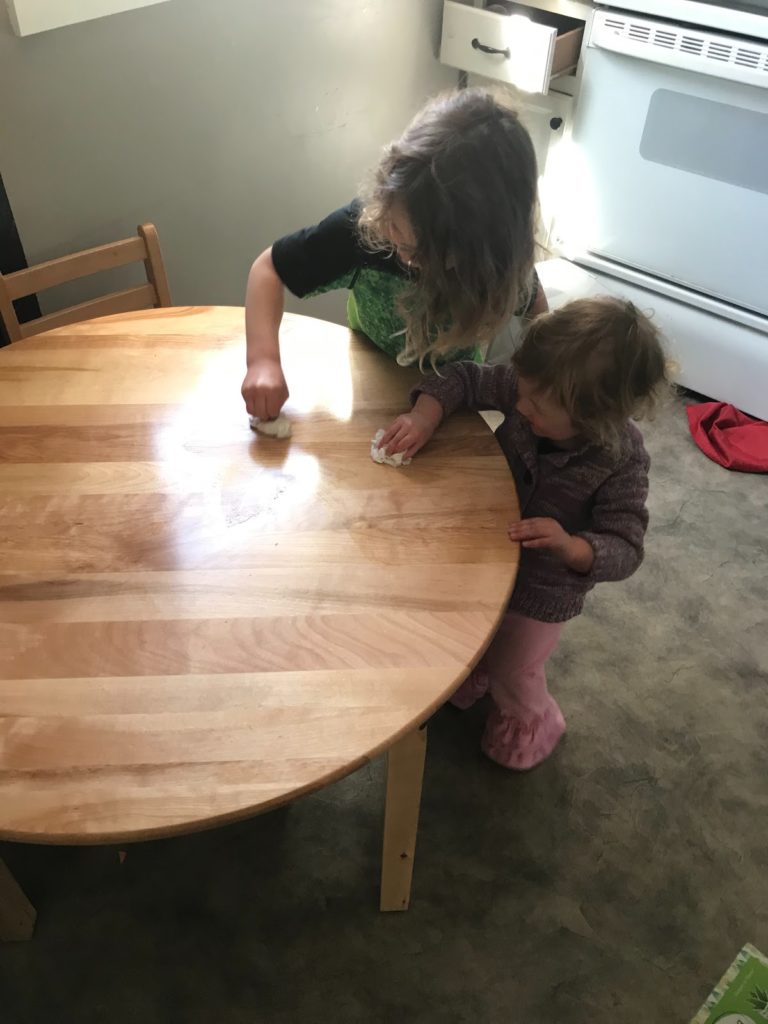
So HOW do we change our daily routines to make our children an integral part of the everyday “work of life”?
Check out our next article: Practical Ways to Include Kids in the Household Upkeep — you can do this!!